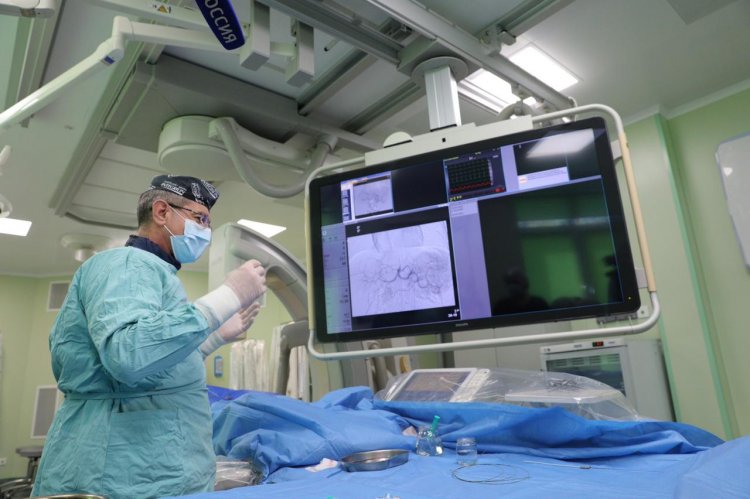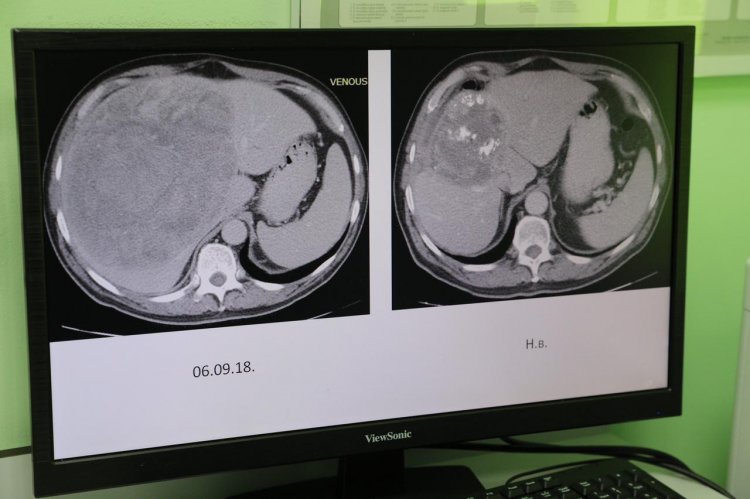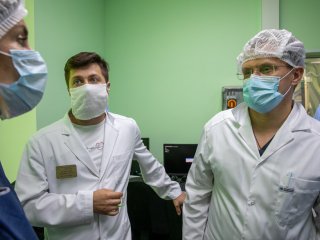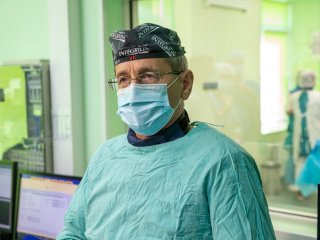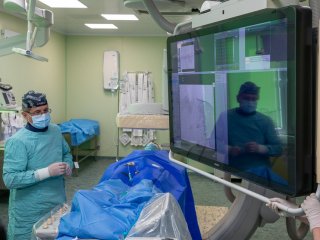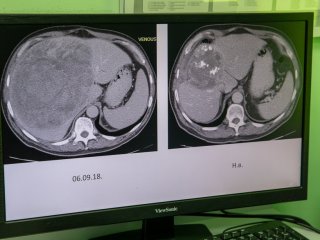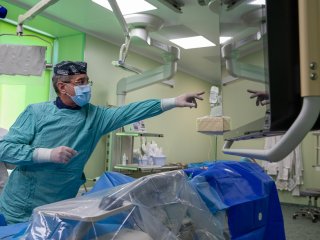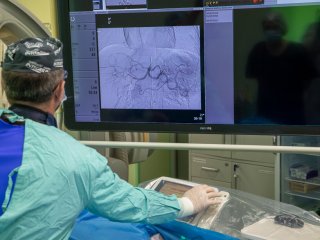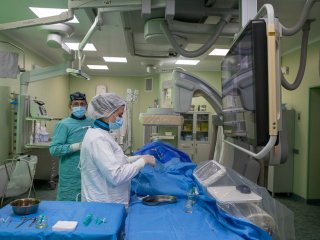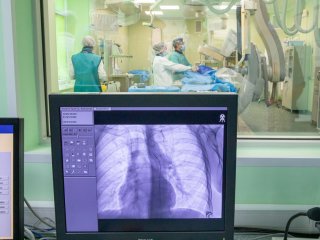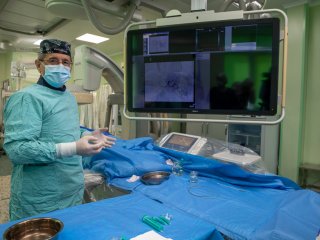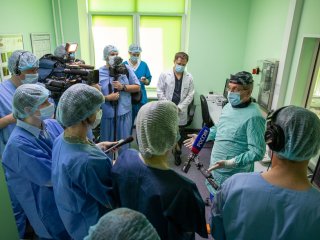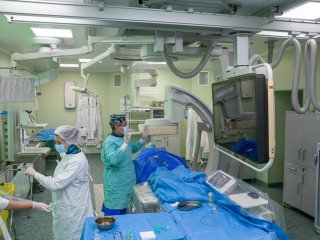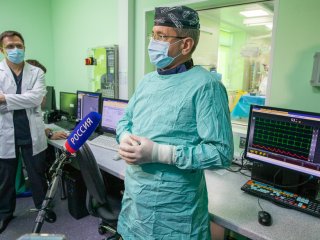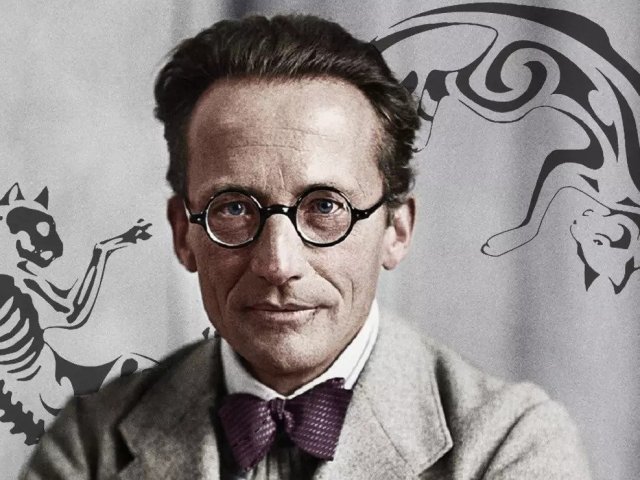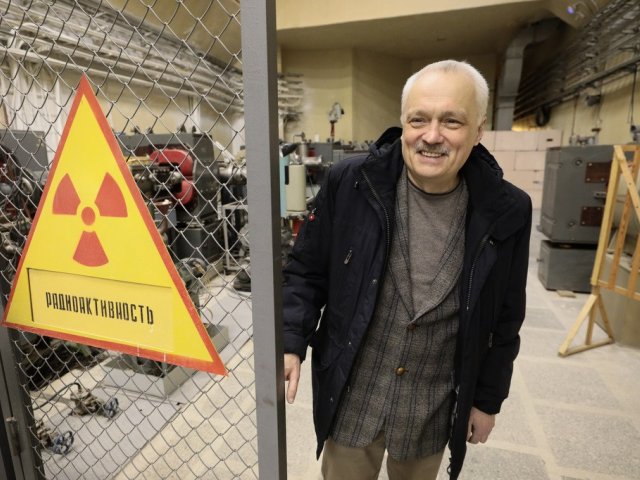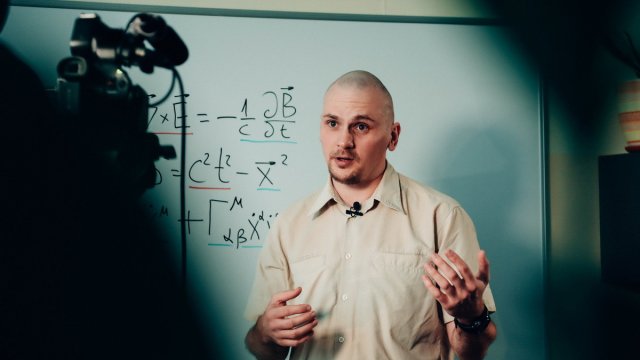On July 20, during the press tour to Obninsk, leading Russian media visited the Division of X-ray Surgical Diagnosis and Treatment Methods of A.F. Tsyba Medical Radiological Scientific Center, where unique chemo– and radioembolization methods are applied. Embolization is based on blocking the blood flow to the tumor site. Embolotherapy is also used to treat the pain syndrome caused by swelling and compression of nerve endings by a tumor. On the whole, embolization selectively reduces blood flow to the tumor, making local thermal treatment much more effective.
We found Valeriy Kucherov, Head of the Division and an X-ray surgeon, in his work place – in the operating room. Specialists of the division were working on a patient with tumor dissemination due to colorectal cancer. “Liver metastasis is a common complication in patients with this type of cancer, since the progress of the disease is rather hidden,” Kucherov emphasized. According to the doctor, 60% of cases involve distant metastases that spread to the liver.
ХSurgical treatment cannot be applied in such cases since the liver is affected rather rapidly and severely – the metastases damage both the left and the right liver lobes. Therefore, chemotherapy specialists are involved. “We help them at a certain stage,” the department manager explained. “In this case, the patient has to go through several rounds of chemotherapy. Our job is to enhance the effect of chemotherapy by means of chemoembolization.” The essence of the method is that the chemotherapy drug is contained in the tumor site due to the embolization effect of the micro vessels of the tumor. This extends the duration of the local impact of the chemotherapy drug on the tumor.
Oncologists know that a tumor cell receives more nutrition that a healthy tissue does. A tumor is constantly building a new vascular network, in order to receive oxygen and develop. “It is this “greed” of the tumor that we use. We administer the chemotherapy, and the tumor tissue actively takes all of it. Thus, healthy cells are affected to a lesser degree.”
Moreover, A.F. Tsyba Medical Radiological Scientific Center is the first Russian center using radioembolization to treat liver cancer and liver metastases, with Russia microspheres based on the radionuclide Yttrium-90. “Our division is quite young. We started in 2018. One of the tasks Andrey Dmitrievich Kaprin set for us was to implement the radioembolization method for treatment of primary and secondary liver cancer. Now, it is almost a routine operation. At present, we use the famous radiopharmaceutical Yttrium. However, there is also the ongoing testing of our own drug – Rhenium.”
Radioembolization is believed to be a ground-breaking method of treating malignant tumors. It is based on destroying cancer cells with radioactive microspheres delivered to the tumor through arterial vessels. It’s a kind of a carrier rocket that delivers the medicine exactly to the target. They block the blood flow to tumor tissues, starving the tumor, which leads to destruction of malignant cells. The ionizing radiation works for a month after the procedure and then disappears completely, while the microspheres stay in the liver without affecting its function in any way. During radioembolization, the patient is exposed to much less radiation than during radiotherapy sessions.
The image on the left shows a tumor before radioembolization. On the right, we can see the result: the tumor is defeated. What is left is some fibrosis in the liver; the doctors will monitor its dynamics
Yttrium is a rather expensive radiopharmaceutical. Moreover, there are some unpredictable factors associated with its application. “In nature, Yttrium-90 is not radioactive. It is charged in powerful reactors. At present, we only have such operations in Tomsk. Its half-life is 72 hours. Even weather changes or a flight delay may disrupt the operation.” Specialists of Tsyba Center hope that Rhenium will make the logistics easier and the application of the method in practical oncology more feasible.
This article was prepared with the support from the Ministry of Science and Higher Education of the Russian Federation and the Russian Academy of Sciences.
